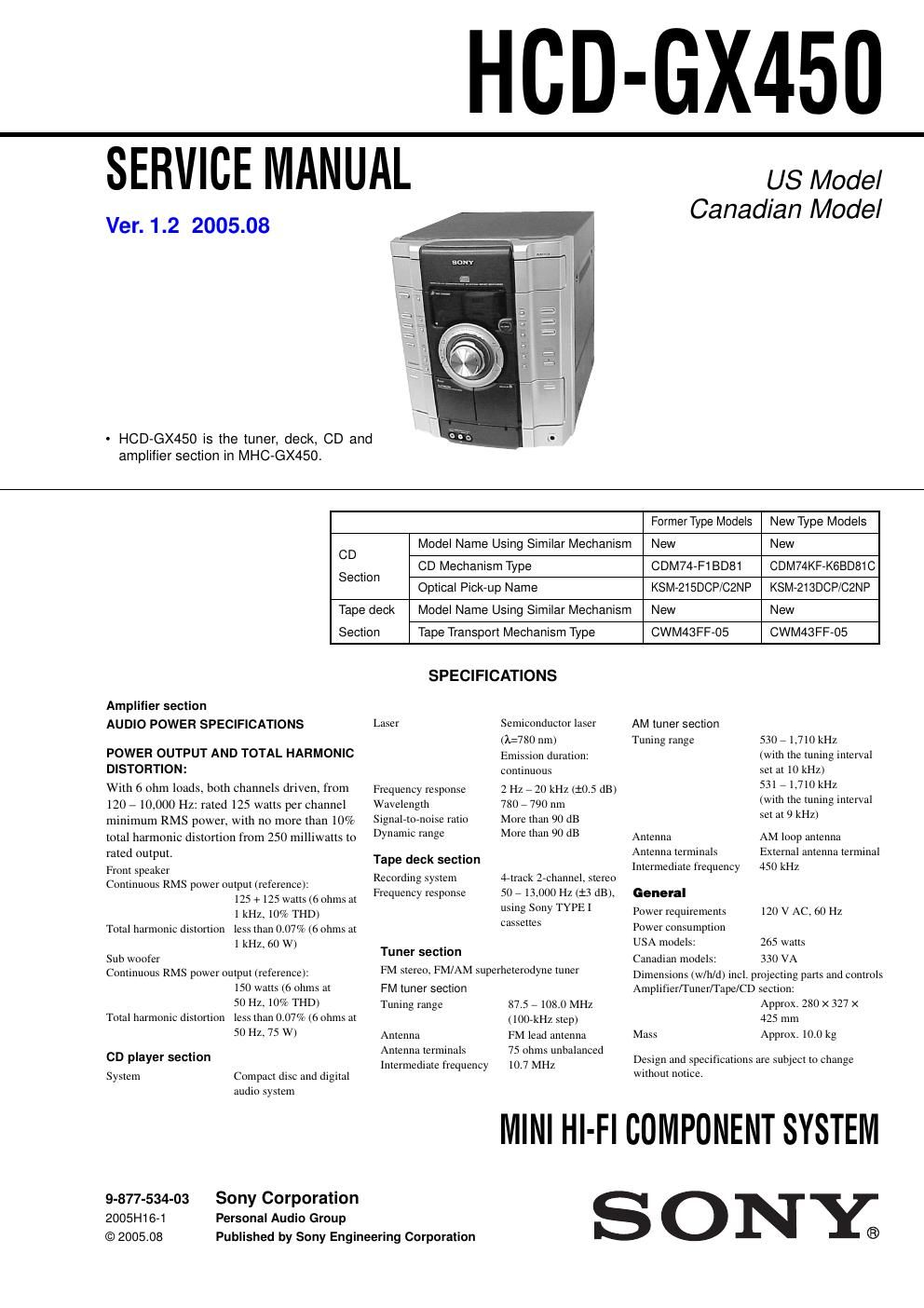Sony hcd gx 450 service manual
This is the 144 pages manual for sony hcd gx 450 service manual.
Read or download the pdf for free. If you want to contribute, please upload pdfs to audioservicemanuals.wetransfer.com.
Page: 1 / 144
